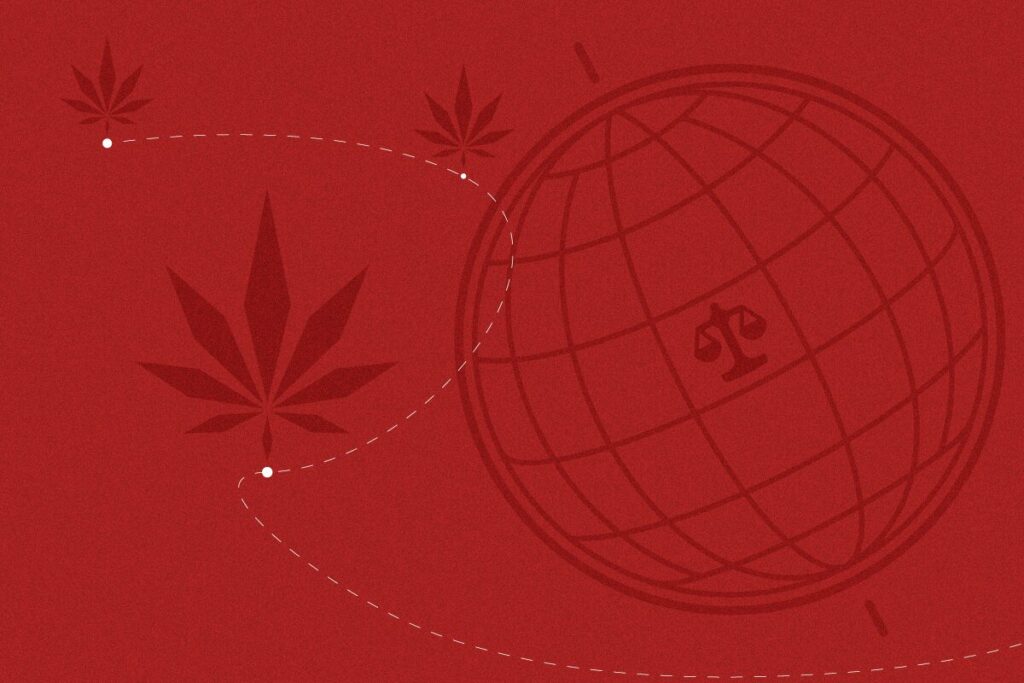Introduction
Cannabis is a world famous plant for polarising reasons. It’s a vital traditional medicine for some, and it’s a damaging narcotic to others. The latter opinion was relatively recently adopted by the US government and they managed to convince the rest of the world’s governments of it, but every citizen and more importantly, not permanently.
Millions of people all over the world were trading cannabis on the black market. This can lead to social upheaval with things like organised crime and low quality control. The cultural legacy and the building pile of scientific evidence behind cannabis led several countries to full or partial legalisation.
Researchers in the USA had a leading part in the research California legalised medical cannabis back with eventual partial legalisation for “recreational” or adult use. Meanwhile, The Netherlands went to the other extent and was the cannabis capital of the world throughout prohibition.
Europe, South America, South Africa and now Thailand, are beginning to engage in the latent value of cannabis. This article will explore the story of cannabis legalisation around the world.
Thailand
Thailand has a long history with medical cannabis with many traditional recipes surviving to this day and some adapted for modern purposes after legalisation. The Thai government became the first in Asia to legalise medical cannabis and consumer CBD in 2018. This was after much deliberation about the cultural relevance of cannabis and prohibitions placed in the modern world.
In 2022, Thailand became the first Asian nation to legalise public access to cannabis to over 21’s, not in public and only from licensed retailers. Thousands of dispensaries opened and many foreign investors have shifted their focus to the Thai market. This led to many smaller dispensaries as well as bigger chains and franchises.
Thailand has become generally more tolerant to cannabis as the traditional culture is revived and thousands of jobs are produced. Not to mention the increased retail and tourism revenue for the nation.
There are suggestions of refining the regulations as they are still in their first generation. Reforms may be a long term process and may wait for demographic data after more years of the industry in action.
Many tourists who come to Thailand are from Asian countries and part of their underground cannabis culture. Depending on long term results other Asian countries may begin to follow the trend of legalisation.
North America
The USA has had a globally influential relationship with cannabis prohibition. The Marijuana Tax Act of 1937 inspired much of the negative views as it joined cannabis with opioids. Then cannabis was included with cocaine and other narcotics in the “war on drugs.” This led to violent and organised crime across the globe and a lack of research. Black market cannabis remained common in the culture and scientists continued to research and push for medical use. California began medical use in 1996 and other states gradually joined in during the 2000s. This helped to reduce stigmatisation in American culture.
Then, in 2012 Colorado and Washington were the first states to legalise recreational cannabis and open dispensaries for open sale for over 21’s. Now it is legal for medical use in 38 states and 24 of them are for adult use. Demographically this means 74% of Americans now live in a medically legal state, with 54% having adult access.
Cannabis being not federally legal, causes issues like not being legally transferable over state lines. California for example produces many other plant products for the rest of the country but cannot share its cannabis. California does have the highest amount of dispensaries per state, but Oklahoma has the most per capita.
Canada on the other hand federally legalised adult-use cannabis in 2018. There are dispensaries across the country and can sell up to 30 grams to over 18s. Mexico, starting prohibition as far back as the 1920’s, provided medical in 2017 and then decriminalised cannabis in 2021. There is as yet no standardised framework for sale of adult-use cannabis. The Caribbean is also seeing reforms and several islands including Jamaica have decriminalised.
Europe
Europeans have a long history with cannabis relatives hemp for rope and hops for beer. By the middle ages were consuming cannabis for medical purposes. Restrictions of cannabis started in the early 1900’s. Now there are many nations with decriminalised adult-use of cannabis and more beginning reform. Many nations started this move with medical cannabis bills in 2018 and earlier.
The Netherlands was the first nation to create a cannabis industry, albeit semi legal, in 1976. After they had determined cannabis was “less dangerous” than opium in 1972. Their coffee shops have become famous around the world. The first fully regulated cannabis was sold there in 2023.
Germany legalised adult-use of cannabis on April 1st 2024. They are in their first stage of legalisation and they are using an experimental social club method. They aim to progress slowly and judge from early results.
Other nations are trying their own methods as well. Malta, the EU’s smallest nation, has legalised adult-use but does not have licensed dispensaries yet. Spain and Switzerland have the beginnings of adult-use regulations but not full legalisation either. Places like Finland and Denmark are in discussions about a bill, perhaps we will have to wait to see how Germany does.
South America
Argentina, in 2017, became an early South American nation to legalise cannabis for medical purposes, and prescriptions are included in the citizens health plan. Recreational use remains illegal but decriminalised, with public opinion shifting to full legalisation.
In Chile, private at home consumption allowed by the plant is still officially illegal. Interestingly, Chile is also the highest consumer of cannabis per capita. Ecuador and Columbia have decriminalised consumption but have no legal industry either.
Uruguay in 2014, became the first South American nation to fully legalise growing and sale of cannabis. Unlike Thailand or Netherlands, legal cannabis is only for residents of Uruguay. There was no need to utilise the tourism market and are only aiming to promote public health for their citizens.
Africa
Many countries in Africa still have laws regarding cannabis based on colonial programs perpetuated by the “war on drugs”, these laws equate cannabis to opium. 10 of the 54 African countries however, have legalised and began research into medical cannabis which are: Lesotho, Zimbabwe, South Africa, Uganda, Malawi, Zambia, Ghana, Eswatini, Rwanda and Morocco.
Morocco is famous worldwide for its hashish production. Despite it still being illegal in the country, Moroccan hash is sold illegally to Dutch retailers and then sold legally to people in the Netherlands. An outdated system that is in the process of being reformed.
South Africa is the only nation so far in Africa to legalise the personal growing of cannabis. There is still no legal framework for an industry as selling cannabis is still technically illegal, however the government does benefit from taxing exported cannabis for medical use.
Impact of Cannabis Legalisation
Most cannabis industries are very young and therefore can’t provide long term data about cultural impact. The Dutch cannabis industry is the only exception with five decades of grey market and Amsterdam was the world cannabis tourism leader. There are some critics of legalisation in the Netherlands, but largely it remains a normal part of life and the government is actively engaging in improving regulations.
In the USA, cannabis legalisation has had an impact in many areas. There was a considerable increase in cannabis use over pharmaceutical drugs and violent crime incidents went down in certain areas. US cannabis tax revenue made $1.7 2019 and $3.7 billion in 2021. This number is expected to rise dramatically and is a good indication of the potential economic benefits of the regulated cannabis market.
There are many potential cultural benefits to a cannabis industry like improved public health, more tourism revenue and more jobs created in retail, agriculture and medicine. The global weed tourism market alone is $17 billion and is set to grow quickly.
Thai society has witnessed a blossoming industry and many have benefited from the health and beauty products as well as safer private cannabis use. Tourists bring a lot to the industry but this is a seasonal revenue stream. For residents, along with the lack of jail sentences and fines, there seems to be a reduction of harder drug use since legalisation.
Legalisation leads to a safer broader range of products, better education and no punishment time for the average consumer. Keeping cannabis in the black market creates organised crime and sometimes synthetic harmful products reaching consumers. Perhaps black market cannabis is so normal because legal cannabis fits well in normal society.
Cannabis, despite being a traditional medicine for thousands of years, has been criticised and criminalised for a few generations. The last fifty years has seen intense criminalisation and much of the world still shares this view in some way. Despite this, with the Netherlands leading the way, many nations across the world have recently begun to accept cannabis as a useful and valuable substance.
Many countries have decriminalised cannabis, this is a big step forward but is difficult to tax. Medical cannabis is helpful to many, but regulated adult use of cannabis is a more fruitful model. Especially if many people consume cannabis do it for a mix of medical and recreational reasons daily and as part of their culture.
The growing number of cannabis industries across the world is helping international destigmatisation. You could argue that sooner or later the majority of the world will have access to regulated cannabis. There are very few drawbacks and many abundant positives of properly cultivating and trading this special and lucrative plant – especially in this global economy.





